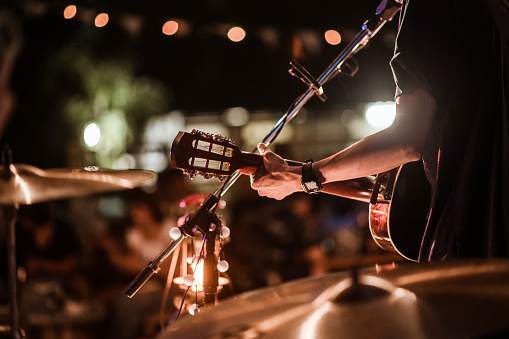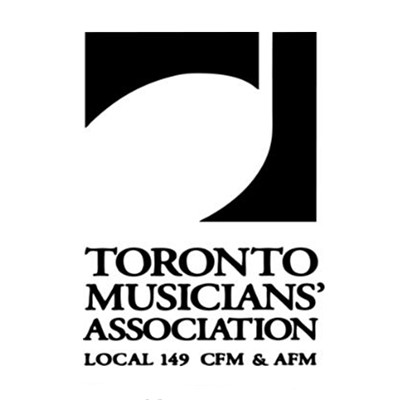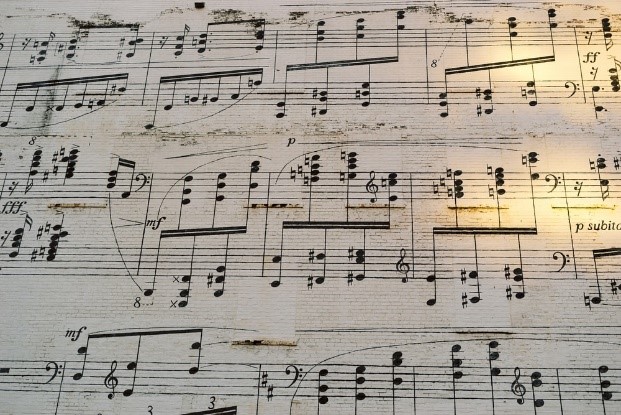Workers' Stories in the COVID-19 Era: Installment #14
December 7, 2021
Written by Christina Love (Undergraduate Student, Indigenous Studies and French)
Edited by Tinu K. Mathew (PhD Student, School of Human Resource Management)
In the fourteenth installment of our series Workers’ Stories in the COVID-19 Era, we interviewed Alexandros, a musician in the Toronto area. A self-described “workaholic,” Alexandros talks about the instability of being a musician and music teacher during the pandemic. As a musician, working three jobs is normal for him. COVID impacted his livelihood.
For privacy, all names have been changed to protect the identities of our interviewees.
Interview
Christina: Can you describe your jobs, the field you work in, and give a general walkthrough of typical tasks or duties?
Alexandros: So, I have multiple jobs within the realm of music. I work as a teacher in the private sector, I am an accompanist at York University, and I’m a performer. Teacher is self-explanatory – I teach music. Usually, I’ll teach for private schools. As an accompanist for York, I basically show up to dance classes and I improvise music according to the instructor’s specifications. As a performer, I perform live music for the listening pleasure of other humans.

I’ve been doing all these jobs since about the age of 18. That’s when I started teaching and performing. I started accompanying when I was 22, so I’ve been doing that as well for the past seven years. As a musician, I constantly do odd jobs on the side. Mostly it’s contract work: sometimes I’ll compose original music, shoot videos, shenanigans like that.
Christina: Would you say that you’re independent or do you work for a corporation or with an agent?
Alexandros: I’m self-employed and I find all my own jobs. This usually means that I’ll have multiple ongoing contracts simultaneously with different organizations. For example, I’m on a contract with York but I also have other ones with schools where I have to show up x number of weeks per year and teach. I manage all my own contracts for performances too. These will usually be with some sort of entertainment company, or I’ll reach out to venues directly. Typically, I play in hotels and bars, though, pre-pandemic, I also did a fair number of wedding receptions.
Christina: That sounds like you’re juggling a lot. How would you say that the pandemic has impacted your work and working conditions?
Alexandros: Throughout the majority of the pandemic, obviously, there was very little performance work. That meant that all my performance income was, at the very least, cut in half, if not completely decimated. The few performances I did have were held over Zoom which made for a lousy time. I really hated performing that way. So much of the art of performance is connecting with the audience, and you just don’t get that when you’re remote.
As for teaching, all the classes were also held over Zoom which is unideal. Especially for music, I want to emphasize that so much of learning music can’t come from reading a textbook or hearing a lecture. The hands-on aspect is integral and suddenly it just vanished. In-person you also get to play alongside your students and jam together – this doesn’t happen online. The work became fairly clinical as a result and none of us were having a good time.
The hands-on aspect is integral and suddenly it just vanished.
The entire experience of being a musician and a worker changed for the worse during the pandemic. My hours were significantly cut because a lot of students didn’t want to even bother with taking music lessons online. I had a lot less students, which meant I was working a lot less hours and taking in a lot less money. Same goes for performance work. As I said earlier, there was almost nothing, and of those slim pickings, it was all online. The work with York was much the same as before the pandemic. Hours weren’t cut there, but it also switched to being online which detracted from the quality of the experience. Funnily enough, since you usually don’t get much consistency with the contracts at York, I actually got more hours there during the pandemic than before. It didn’t make up for lost income, but it was a bit steadier employment, which is more than many can say. Now that we’re opening up, my hours have been increasing, though they’re not yet at pre-pandemic levels.
Christina: Do you have any sort of body representing your, and other musicians’, rights? Or is self-advocacy more of the norm?

Alexandros: At York I think we do have that, but I’m not in the loop on it so I wouldn’t know what steps were being taken by that body or not. I’m pretty sure we get emails from them, but I don’t check my York emails; it’s too much effort. As for everything else, I’m not part of the Toronto Musicians’ Association and I don’t have representation as a teacher working for private schools; there’s no union I’m aware of for that. I do put my foot down when I need to, however.
Christina: What impact has working during the pandemic had on your mental and physical health and wellbeing? Is it generally worse, better, or the same as pre-pandemic?
Alexandros: On the whole, I would say that my mood was definitely worse due to the measures that we needed to be taking because of the pandemic. The quality of my lessons and performances took a major hit with the digital transition. You also miss that human connection that is so important. I’m sure everyone can relate to that pandemic experience. Even working in a corporate job when you’re sitting in a meeting, there’s still a level of camaraderie that doesn’t translate online when everyone’s isolated in their homes and is just a face on a screen, if that. During the early days of the pandemic, my professional social needs were not being met.
You also miss that human connection that is so important.
When you’re performing live, you get response from the audience and a sort of atmospheric energy is all around you, whereas on Zoom, you’ll perform for these little black boxes, and they’ll put up clapping emojis after. It’s just like, “This is what my life has come to?” It was discouraging, like a cloud over my mood most of the time.
Christina: Do you think that you’re compensated fairly for your time? What is job security like for you?
Alexandros: For the most part, I would say I’m compensated fairly for my time. Because I’m self-employed, I make my own rates for lessons and performances. It’s only the York contract that I don’t determine and even then, they more-or-less give me a fair amount of money. As for the second part of your question, for the most part, there’s no job security. All of my work is contract work, pretty much. The York contract is yearly, and you never know for sure you’re going to get it renewed until you do. Working with schools and performing is heavily dependent on the market. If there’s no demand, you will be working and earning less. With the schools, it’s more consistent because there will always be kids who want to learn music, even if there are fewer students during events like pandemics, so that one is a bit more secure than performing. In terms of performances, even if you do have a contract, the people employing you can terminate it as soon as they get sick of you. There is next to no job security in my area of this industry.
Christina: How would you describe your work-life balance?
Alexandros: I do think that I’m somewhat of a workaholic and I have a really hard time saying no to jobs. I honestly can’t gauge my work-life balance in a healthy way because I do not have a healthy relationship with my work. I love my work and what I do, but I’m always willing to take on more and do more and sacrifice more hours for work. It’s not a healthy relationship so I don’t know how to answer that question.
I honestly can’t gauge my work-life balance in a healthy way because I do not have a healthy relationship with my work.
Christina: How has your relationships with your superiors changed as a result of the pandemic?
Alexandros: In my day-to-day interactions with my superiors, I would say that there has been no change aside from the occasional email reminding us to follow the health guidelines, or something small like that. Definitely a lot of other workers would have felt changes, especially those working directly under a manager or supervisor, but I really didn’t. They weren’t more demanding and were sympathetic for the most part.
Christina: As a gig worker, do you experience more employment instability because of the pandemic and how does this make you feel?
Alexandros: I’d say that COVID directly is the culprit for this issue. Mostly things have been fairly consistent except when a family at my teaching job has gotten exposed and they get sick and need to quarantine. In those cases, they obviously will cancel lessons until they get better which slashes your hours for a couple of weeks, especially if they are friends with, and exposed, other families. At a certain point you get dejected and it’s just like, “Man, this again?” You can’t really be angry at that, but it definitely contributes to job insecurity.

Of course, the pandemic contributed to job instability what with the fewer hours and cancellations, but being a musician generally is an unstable life unless you have significant commercial success. If you’re not hustling and grinding everyday to get work, you’re not going to be able to feed yourself. Even when you get contracts, like I said before, you never know how long that income will last. Anyway, the pandemic didn’t change the nature of being a musician so much as exaggerate the existing problems we deal with. This is where the broke musician stereotype really comes into play because you will be broke unless you’re working all the time. Thankfully, I enjoy sniffing out new contracts and making new connections, but it’s not for everyone, and you only really get stability if you’re at the top of the game.
This is where the broke musician stereotype really comes into play because you will be broke unless you’re working all the time.
Christina: What supports were you able to access through your work and through the government during the pandemic, and were they enough?
Alexandros: I did apply for CERB at some point and got it so that was a big help. Other than that, there were really no other supports that I am aware of through the government, and I didn’t get any through my jobs. You can always use more money so I wouldn’t say that CERB was enough, especially considering cost of living, incidentals, and the fact it was only available if you made under a certain amount of money per month.
Christina: Do you feel safe working?
Alexandros: Yes, I do. All I can do is the best that I can to ensure my safety and I think I’m doing an ok job. Also, because I have more of an established relationship between my clients as their music teacher, I don’t get as much hostility as other workers do for asking them to follow precautions. There’s a level of respect that you don’t get in customer service-type jobs, so when I ask them to wear masks or distance more from me, they’ll generally do it.
Christina: If you had power, what would you have done differently during the pandemic?
Alexandros: I don’t know.
It’s trauma that’s been normalized.
Christina: Any final thoughts?
Alexandros: It’s funny how I was reading the postings on the GLRC website about other workers’ experiences during the pandemic and some of them are straight up horror stories. The lengths that they were overworked and underpaid are truly horrific. Comparatively, my experience doesn’t seem to be as bad. Of course, there’s the overworking, but that’s more self-inflicted than anything. But yeah, I didn’t experience trauma like the other workers have and it was sort of shocking how my experience, in this regard, doesn’t seem to be the norm. It’s trauma that’s been normalized.
